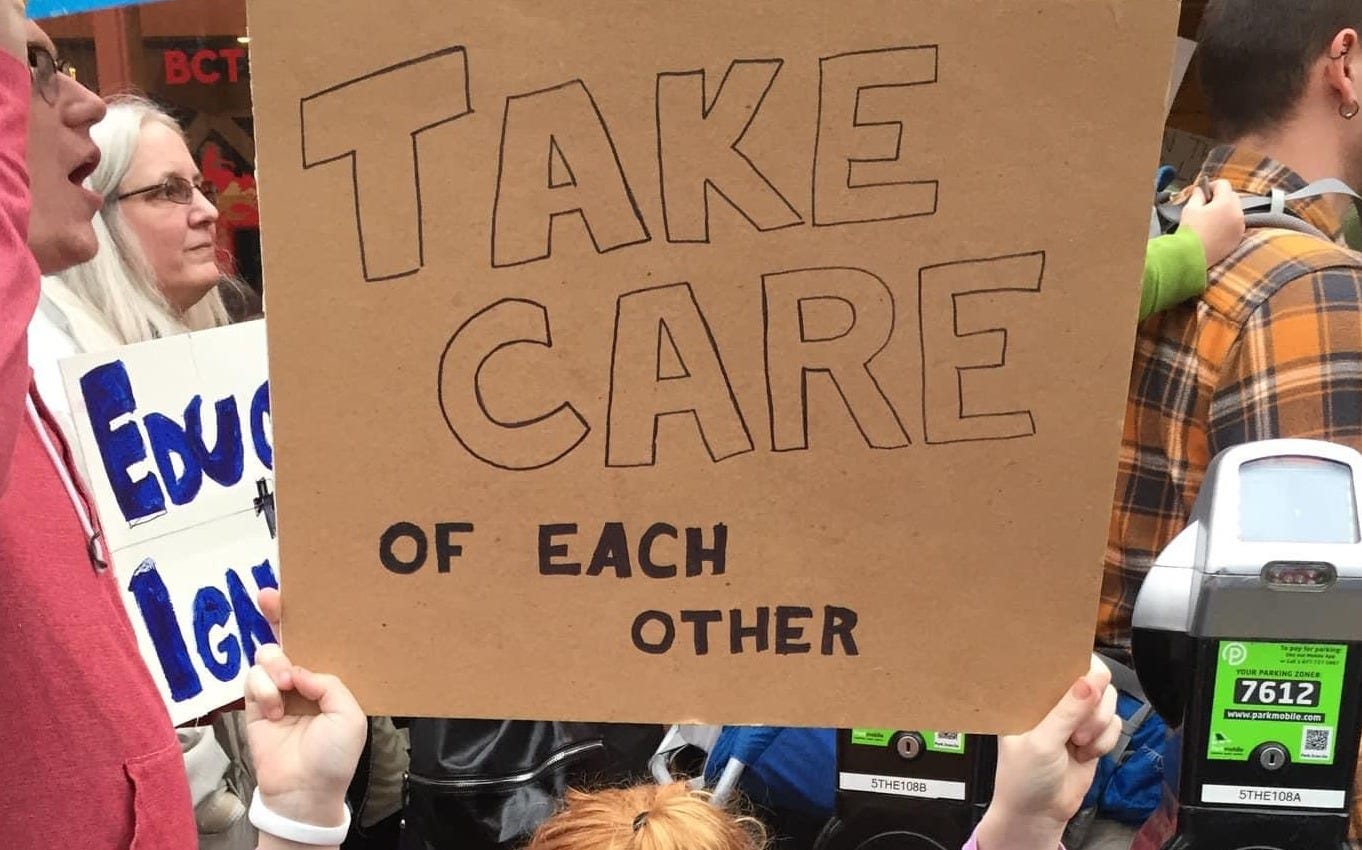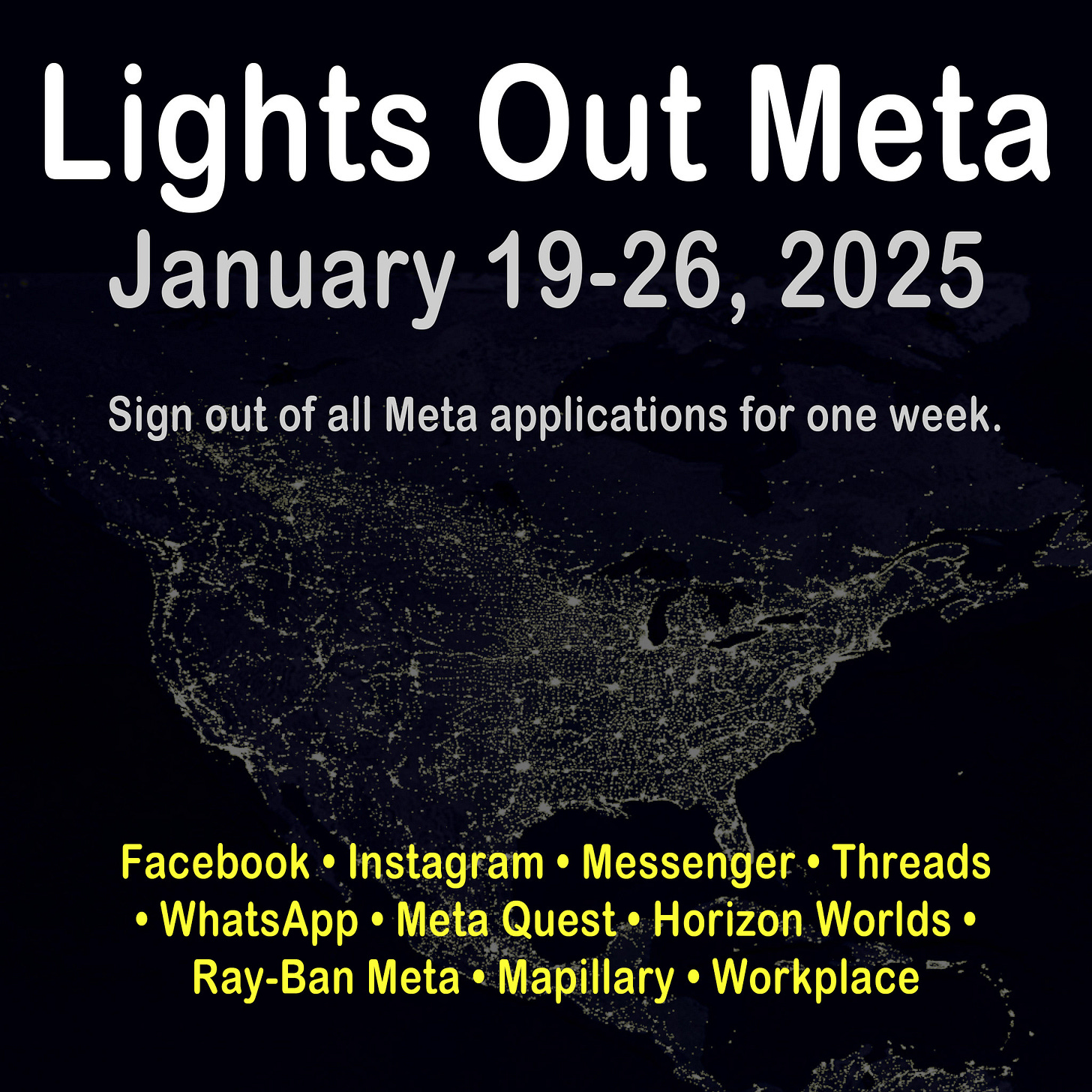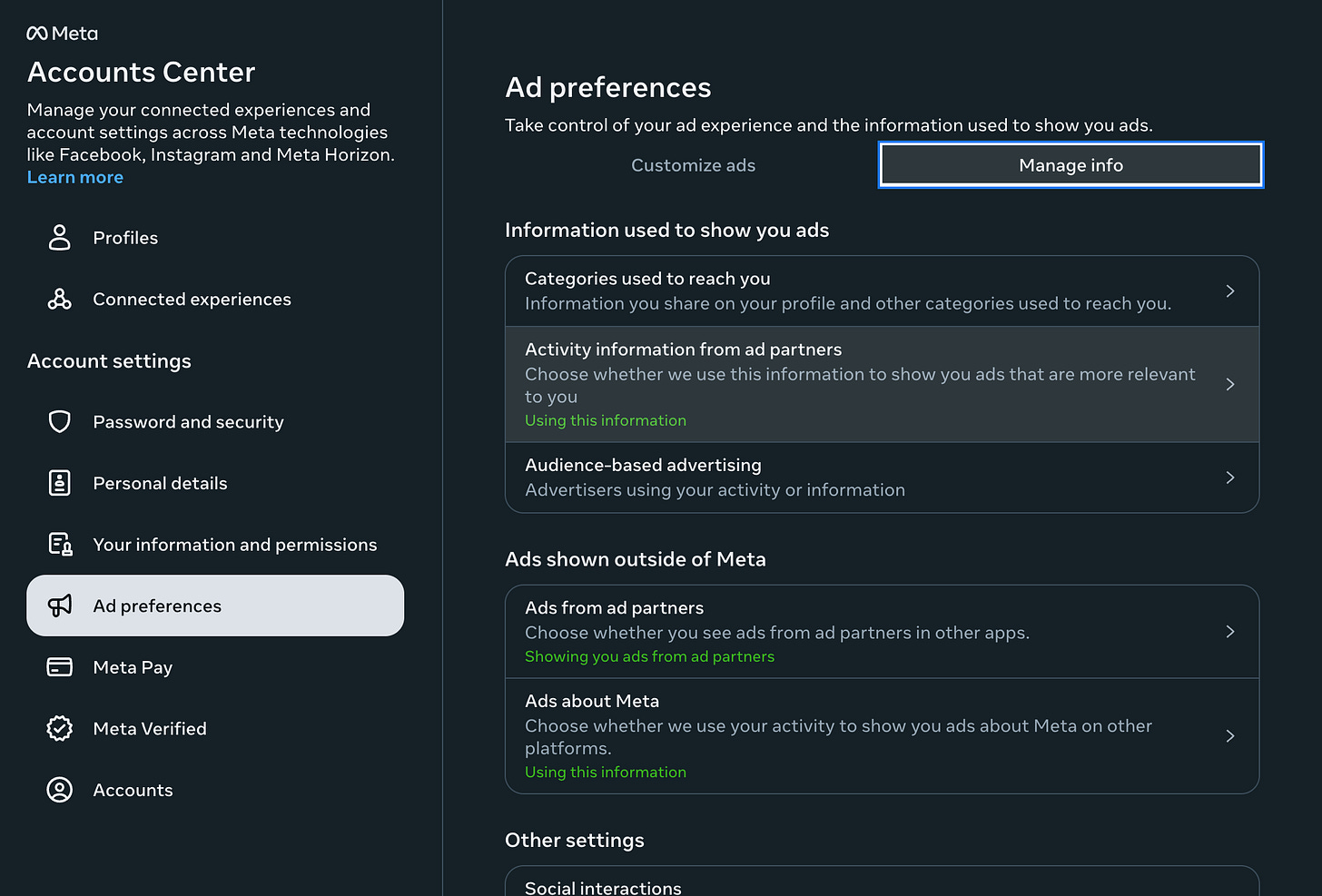Even in the face of benevolence, power differentials are always present. When they are extreme and oppressive, it is difficult to experience hope. The advocacy we are encouraged to use—voicing concerns, writing letters, casting votes, institutional process—doesn’t often lead to sufficient change. However, an extreme power differential typically comes with at least one perk:
You are not alone.
For about half the country—probably more, but they don’t realize it yet—the Worst Sequel Ever starts Monday when Donald Trump gets sworn into office for a second time. The disappointment and depression of early November morphed into a period of muddling through quiet uncertainty. During this time, we did things like mourn, refuel, and make preparations. Schrödinger's Administration reveals itself this week, and it is time to shift to the next gear.
Starting Sunday, a grassroots protest of Meta is beginning where the target is its CEO, who spent his period of quiet uncertainty being loud and decisive, shifting right to align with the new President. While none of us hold the same individual power being wielded by Mark Zuckerberg, collectively our whispers can make a lot of noise.
While the implied goal of this action is getting Meta leaders to slow their roll, if not reverse it, this protest is also about seeing and being seen by others. Courts and congresses and boards have failed us, but there is hope in witnessing the strength of solidarity.
The Lights Out Meta protest is asking for only a week—7 days to demonstrate to Meta leaders that our collective power carries weight. In my absence, I will dive deeper into other communities (like Substack and Bluesky) and strengthen the connections I have in other ways. I hope my absence is noticed and will at least inspire reflection, if not exodus.
Although many are removing themselves permanently from Facebook and Instagram, I plan to return. Conversations arise in the places we are present. Those who are able cannot cede these spaces to ignorance.
Unfollow the Money
As a rule, I don’t mind Internet trackers. Their main purpose is to help the websites I use shape content I see into something more appealing. I have a great interest in RPGs and games, so getting Kickstarter ads while scrolling through Facebook is helpful. I just came off of an active Chicago Bears season, so seeing all of the nostalgic content and speculation about head coaching news is welcome.
The problem of the moment, though, is that this is how Meta makes its billions of dollars. If the intent is to protest the policy decisions and invasive practices of a suspect company, then it isn’t enough to just sign off for a few days. Reduced activity on Meta’s applications will be noticed, but inability to capitalize on your information will actually hurt.
Turn out the lights before you leave
Reducing your participation in the money machine starts with Meta’s Account Center which covers multiple applications. The screenshots below reflect where the settings live at the time I typed this, but the application is notorious for moving things like this around, using different labels and descriptions for the same setting, and building uncertainty into the UI about what is actually saved.
The following information comes from an article from the Electronic Frontier Foundation (EFF) published in anticipation of the week-long protest. The main goals include:
Stop Meta’s ability to target ads based on info collected elsewhere.
In the Manage info section of Ad preferences in the Accounts Center is a setting to control whether information gathered about you through trackers can be used to shape the ads you see in Facebook. If this is turned off, I would expect the ads served to me to become more general and less appealing, but relevance is one of the ways they make money.Stop Meta’s ability to help other advertisers target you.
The ad market within Meta is an auction that external companies can bid on to target their advertising to you and others with similar profiles. Turning this off doesn’t remove advertising, but it does remove a money-making target from the process.Install and configure PrivacyBadger to block Meta’s trackers.
Trackers are the way platforms like Meta are able to follow you around the Internet. They look for clues on what appeals to you, primarily for advertising. Even though there are ways to say ‘Do Not Track’, that doesn’t mean it isn’t happening.
This browser extension from the Electronic Frontier Foundation will look for trackers and disable them once it encounters the same one three times. If a page that you want seems broken—such as, a video you are expecting does not play—Privacy Badger can be disabled for just that site.Protect your phone.
Advertising IDs enable third-party tracking on mobile devices, and disabling it will make it more difficult for advertisers and data brokers to track and profile you. Apple made this easy a few updates ago, to limit how much of your new data is on the market.


On an iPhone, preventing most tracking is three screens and a button away.









